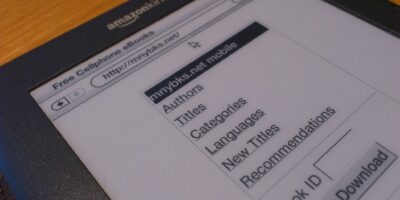Self-publishing has gotten complicated with all the conflicting advice flying around. As someone who went through both traditional and self-publishing routes with my first three books, I learned everything there is to know about making this decision. Today, I’ll share what actually matters when choosing your path.
Probably should have led with this section, honestly — but let me tell you what self-publishing actually looks like in 2025.
What Self-Publishing Gets You

You Control Everything
This isn’t just about picking your cover art. Self-publishing means you decide when to launch, how to price your book, which markets to target, and what changes to make after publication. Traditional publishers will override your preferences on all of this.
I’ve watched friends wait 18 months for their traditional publisher to greenlight a simple cover redesign. When my self-published book needed a new cover, I had it done in three days.
You Can Move Fast
Traditional publishing moves like a glacier. From contract to bookshelf, you’re looking at 12-24 months minimum. I’ve seen authors lose entire market windows waiting for their publisher’s production schedule.
With self-publishing, you control the timeline. My second book went from final manuscript to live on Amazon in six weeks. That’s what makes self-publishing appealing to writers who write about trending topics or timely subjects.
The Money Actually Goes to You
Traditional publishers typically pay 10-15% royalties on print books and 25% on ebooks. Self-publishing through Amazon KDP gets you 70% on ebooks priced $2.99-$9.99, and 60% on print books.
Do the math. If your book sells for $4.99 as an ebook, you get $3.50 per sale self-publishing versus maybe $1.25 traditionally. This difference compounds fast.
You Can Serve Weird Niches
Traditional publishers need books that’ll sell 10,000+ copies to justify their overhead. Writing a guide to vintage typewriter repair? A cookbook for people with alpha-gal syndrome? Good luck finding a traditional publisher.
Self-publishing lets you write for audiences that traditional publishers consider “too small.” Some of the most profitable self-published authors I know write for hyper-specific niches.
You Learn the Business
Self-publishing is a crash course in book marketing, distribution, pricing strategy, and reader psychology. You’ll understand the business in ways that traditionally published authors never will.
This knowledge stacks. Even if you later pursue traditional publishing, you’ll negotiate better contracts because you understand the economics.
The Hard Parts Nobody Mentions
You Pay for Everything Upfront
Professional editing runs $1,000-$3,000. Cover design costs $300-$1,500. Formatting might be another $200-$500. Marketing? Budget at least $500-$2,000 for your initial launch.
Traditional publishers cover all of this. Self-publishing means you’re the investor. I spent $4,200 on my first self-published book before I earned a dollar.
Marketing Falls Entirely on You
This is where most self-published authors fail. You can’t just upload your book and hope people find it. You need to understand Amazon’s algorithm, build an email list, run ads, engage on social media, and hustle for reviews.
Traditional publishers provide some marketing support (though less than most authors expect). Self-publishers start from zero. If you hate marketing, this will be painful.
Quality Control Is Your Problem
Traditional publishers provide editors, proofreaders, and designers who’ve worked on hundreds of books. When you self-publish, you need to hire these people yourself or accept lower quality.
I see self-published books with typos on the back cover, amateur formatting, and covers that scream “unprofessional.” Hiring good freelancers helps, but you need to know how to evaluate their work.
Nobody Cares That You Published a Book
Traditional publishing still carries prestige. Getting a book deal from Penguin Random House or HarperCollins opens doors. Self-publishing doesn’t impress anyone.
This matters if you want speaking gigs, media appearances, or teaching positions. Self-published authors can achieve these things, but you’ll need to prove yourself through sales numbers and reader reviews.
Bookstores Won’t Stock You
Barnes & Noble and independent bookstores primarily stock traditionally published books. Getting your self-published book on physical shelves is possible but difficult and often not worth the effort.
Most self-published sales happen online, especially through Amazon. If you dream of seeing your book on a bookstore shelf, traditional publishing is still the clearer path.
So Which Path Should You Take?
Self-publish if you want control, can invest $2,000-$5,000 upfront, and enjoy (or can tolerate) marketing. Self-publishing works well for niche books, series, and authors building a business around their writing.
Choose traditional publishing if you want prestige, lack marketing experience, can’t invest money upfront, or wrote something with mainstream appeal that fits traditional publishers’ lists.
Here’s what I actually did: I self-published my first two books to learn the business and build an audience. Then I used those sales numbers to land a traditional deal for book three. You don’t have to pick one path forever.
The real question isn’t “which is better” but “which matches where you are right now.” Your publishing path can evolve as your goals and skills change. Both routes can work. Both have published bestsellers. Pick the one that fits your current situation and start writing.
Recommended Resources
The Elements of Style – $9.95
The classic writing guide for clarity and style.
On Writing Well – $15.99
Essential guide to nonfiction writing.
As an Amazon Associate, we earn from qualifying purchases.




Leave a Reply